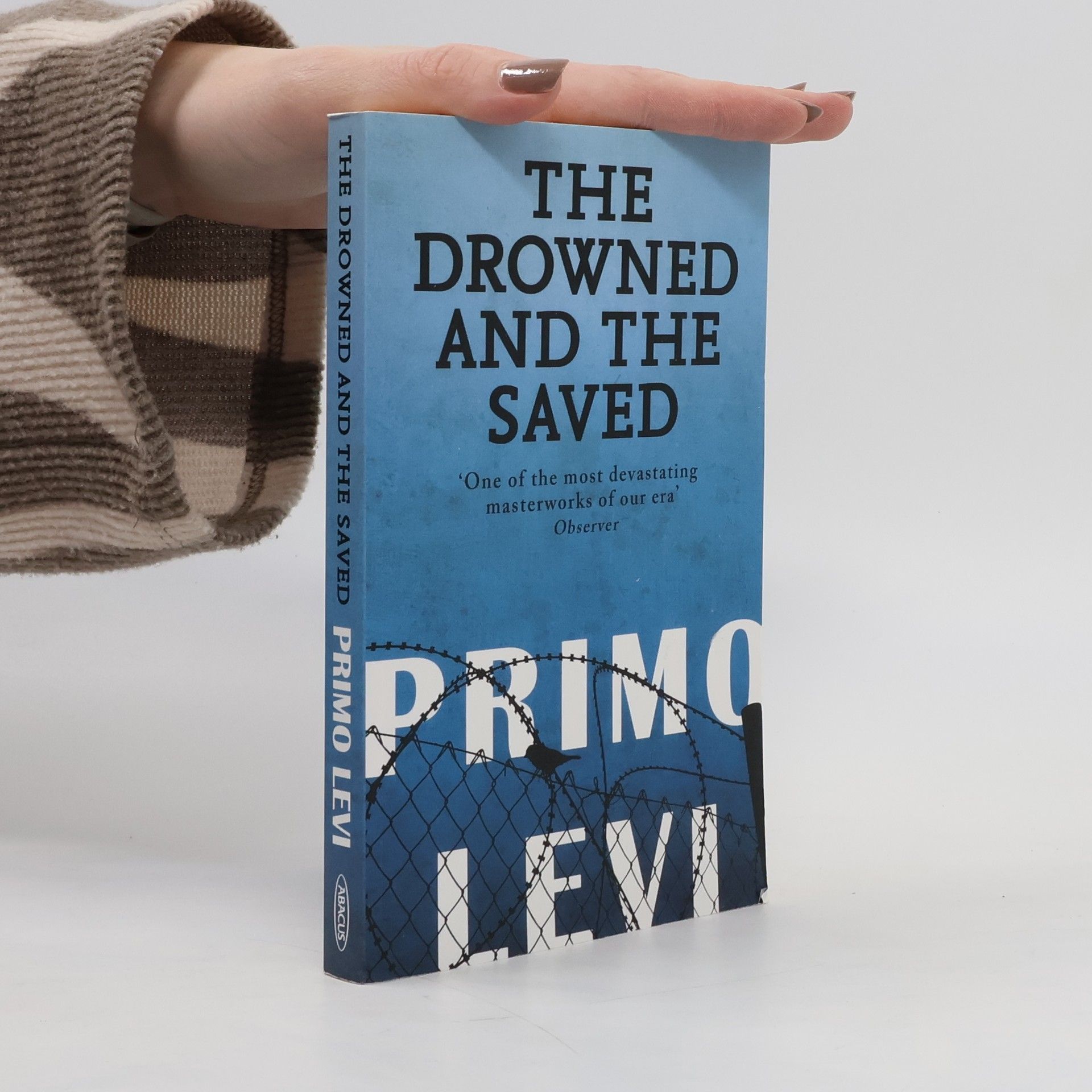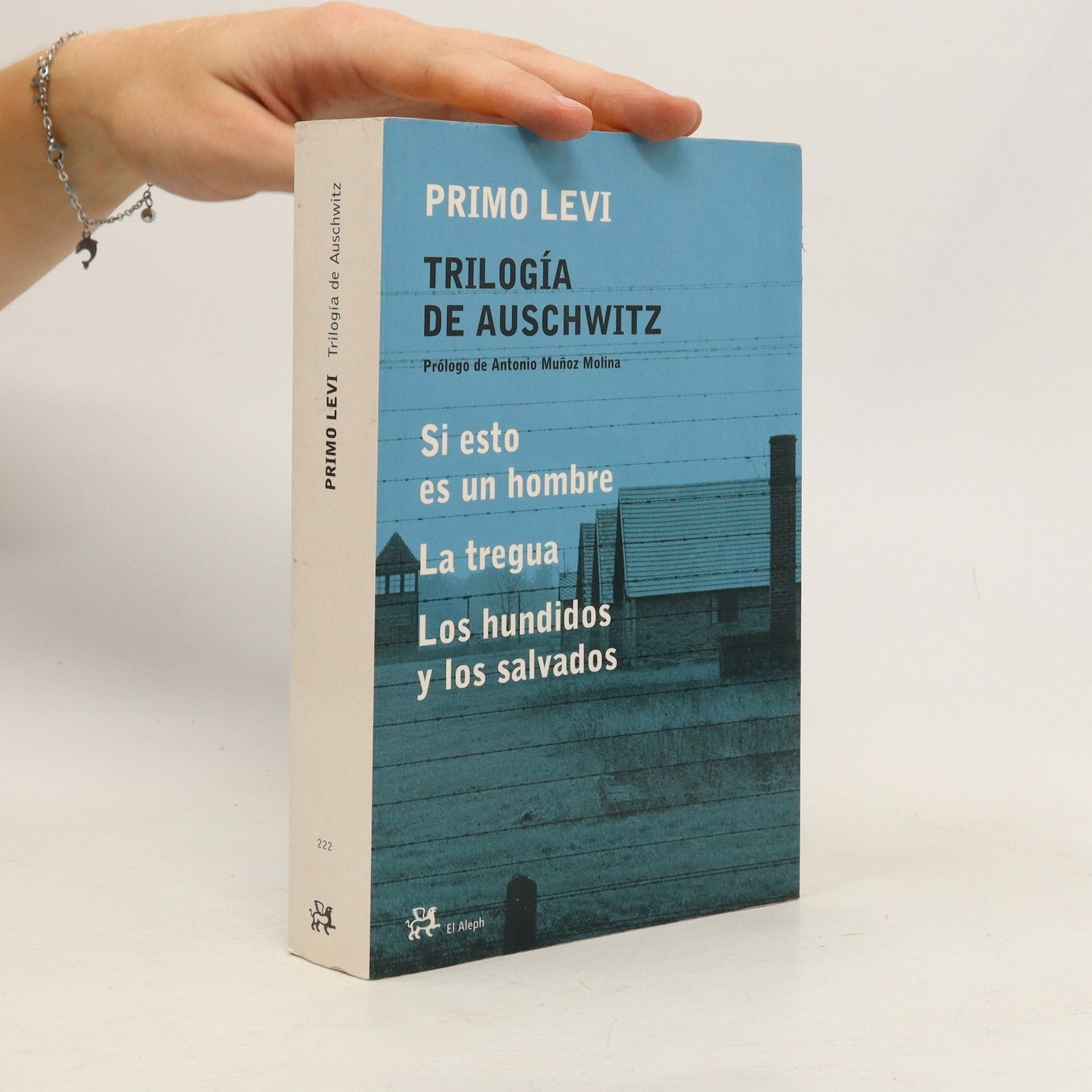Survival in Auschwitz is a mostly straightforward narrative, beginning with Primo Levi's deportation from Turin, Italy, to the concentration camp Auschwitz in Poland in 1943. Levi, then a 25-year-old chemist, spent 10 months in the camp. Even Levi's most graphic descriptions of the horrors he witnessed and endured there are marked by a restraint and wit that not only gives readers access to his experience, but confronts them with it in stark ethical and emotional terms: "[A]t dawn the barbed wire was full of children's washing hung out in the wind to dry. Nor did they forget the diapers, the toys, the cushions and the hundred other small things which mothers remember and which children always need. Would you not do the same? If you and your child were going to be killed tomorrow, would you not give him something to eat today?" --Michael Joseph Gross
Auschwitz Trilogy Series
This series delves into the profound depths of the human experience during history's darkest hours. It explores themes of survival, memory, and morality when confronted with extreme suffering. The unflinching testimony serves as a powerful reflection on the resilience of the human spirit and the vital importance of remembrance. It is an unflinchingly honest and deeply moving read.






Recommended Reading Order
- 1
- 2
First published in English in 1965, The Reawakening is Primo Levi's bestselling sequel to his classic memoir of the Holocaust, Survival in Auschwitz. The inspiring story of Primo Levi's liberation from the German death camp in January 1945 by the Red Army, it tells of his strange and eventful journey home to Italy by way of the Soviet Union, Hungary, and Romania. Levi's railway travels take him through bombed-out cities and transit camps, with keen insight he describes the former prisoners and Russian soldiers he encounters along the way. An extraordinary account of faith, hope, and undying courage, The Reawakening was praised by Irving Howe as "a remarkable feat of literary craft."
- 3
Les Naufrages et les rescapes
- 200 pages
- 7 hours of reading
" C'est arrivé et tout cela peut arriver de nouveau : c'est le noyau de ce que nous avons à dire. " Primo Levi (1919 - 1987) n'examine pas son expérience des camps nazis comme un accident de l'Histoire, mais comme un événement exemplaire qui permet de comprendre jusqu'où peut aller l'homme dans le rôle du bourreau ou dans celui de la victime. Quelles sont les structures d'un système autoritaire et quelles sont les techniques pour anéantir la personnalité d'un individu ? Quel rapport sera créé entre les oppresseurs et les opprimés ? Comment se crée et se construit un monstre ? Est-il possible de comprendre de l'intérieur la logique de la machine de l'extermination ? Est-il possible de se révolter contre elle ? Primo Levi ne se borne pas à décrire les aspects des camps qui restaient obscurs jusqu'à aujourd'hui, mais dresse un bilan pour lutter contre l'accoutumance à la dégradation de l'humain.
- 3
Primo Levi's devastating and classic account of what it meant to have survived the Holocaust.
«Tuve la suerte de no ser deportado a Auschwitz hasta 1944, y después de que el gobierno alemán hubiera decidido, a causa de la escasez creciente de mano de obra, prolongar la vida media de los prisioneros que iba a eliminar». Así comienza 'Si esto es un hombre', libro que inaugura la trilogía que Primo Levi dedicó a los campos de exterminio. Crónica del horror cotidiano, el libro describe en el lenguaje mesurado y sobrio del testigo la espera de la nada, la privación cotidiana, el olvido de la condición humana de los prisioneros. Completan la Trilogía de Auschwitz dos obras posteriores: 'La tregua' (1963), relato picaresco de las tribulaciones de un grupo de italianos, liberados de los campos nazis, que recorren durante meses los caminos de Europa central en compañía del Ejército Rojo, y 'Los hundidos y los salvados' (1986), un ensayo en el que Primo Levi trata de comprender, a partir del ejemplo de los campos nazis, las condiciones y circunstancias que permiten la degradación del ser humano.
Primo Levi, reduce da Auschwitz, pubblicò Se questo è un uomo nel 1947. Einaudi lo accolse nel 1958 nei "Saggi" e da allora viene continuamente ristampato ed è stato tradutto in tutto il mondo. Testimonianza sconvolgente sull'inferno dei Lager, libro della dignità e dell'abiezione dell'uomo di fronte allo sterminio di massa. Se questo è un uomo è un capolavoro letterario di una misura, di una compostezza già classiche. Levi, ne La tregua, ha voluto raccontare anche il lungo viaggio di ritorno attraverso l'Europa dai campi di sterminio: una narrazione che contempera il senso di una libertà ritrovata con i segni lasciati dagli orrori sofferti.
Moments of Reprieve
- 176 pages
- 7 hours of reading
Primo Levi was one of the most astonishing voices to emerge from the twentieth century: a man who survived one of the ugliest times in history, yet who was able to describe his own Auschwitz experience with an unaffected tenderness.Levi was a master storyteller but he did not write fairytales. These stories are an elegy to the human figures who stood out against the tragic background of Auschwitz, 'the ones in whom I had recognized the will and capacity to react, and hence a rudiment of virtue'. Each centres on an individual who - whether it be through a juggling trick, a slice of apple or a letter - discovers one of the 'bizarre, marginal moments of reprieve'.
If This Is A Man/The Truce
- 400 pages
- 14 hours of reading
Primo Levi's account of life as a concentration camp prisoner falls into two parts. IF THIS IS A MAN describes his deportation to Poland and the twenty months he spend working in Auschwitz. THE TRUCE covers his long journey to Italy at the end of the war through Russia and Central Europe. Levi never raises his voice, complains or attributes blame. By telling his story quietly, objectively and in plain language he renders both the horror and the hope of the situation with absolute clarity. Probing the themes which preoccupy all his writing - work love, power, the nature of things, what it is to be human - he leaves the reader drained, elated, apprehensive. With the moral stamina and intellectual pose of a twentieth-century Titan, this slightly built, duitful, unassuming chemist set out systematically to remember the German hell on earth, steadfastly to think it through, and then to render it comprehensible in lucid, unpretentious prose. He was profoundly in touch with the minutest workings of the most endearing human events and with the most contemptible